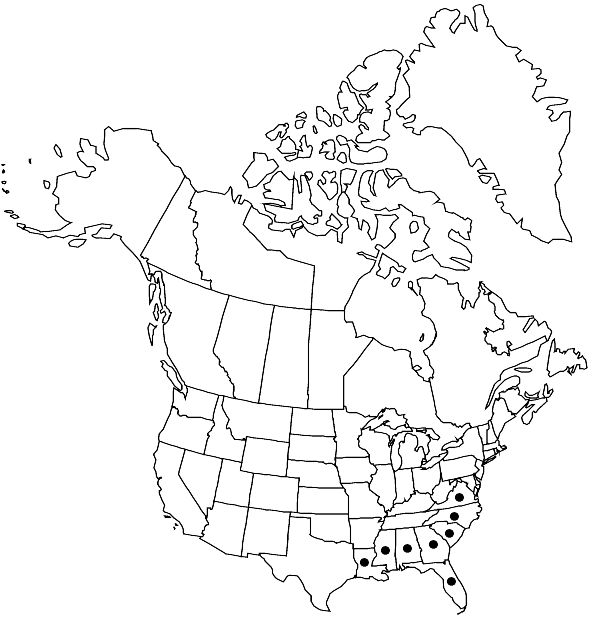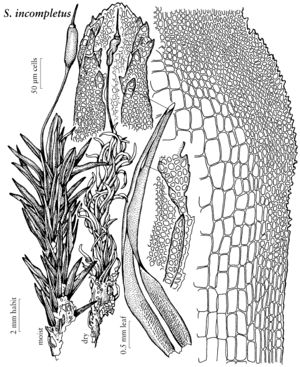Difference between revisions of "Syrrhopodon incompletus"
Sp. Musc. Frond. Suppl. 2(1,2): 119. 1824,.
FNA>Volume Importer |
imported>Volume Importer |
||
| (2 intermediate revisions by 2 users not shown) | |||
| Line 52: | Line 52: | ||
|publication year= | |publication year= | ||
|special status= | |special status= | ||
| − | |source xml=https:// | + | |source xml=https://bitbucket.org/aafc-mbb/fna-data-curation/src/2e0870ddd59836b60bcf96646a41e87ea5a5943a/coarse_grained_fna_xml/V27/V27_973.xml |
|genus=Syrrhopodon | |genus=Syrrhopodon | ||
|species=Syrrhopodon incompletus | |species=Syrrhopodon incompletus | ||
Latest revision as of 21:29, 5 November 2020
Plants gregarious to densely caespitose, dark green to brownish when dry, mostly 1–2 cm. Leaves monomorphic, mostly 3–5 mm, often secund to circinate at stem tips when dry; distal lamina not reflexed at shoulders, plane or channeled when wet, lanceolate to linear-lanceolate, apex broadly acute; margins absent hyaline cells, thickened and with two rows of teeth distally; medial cells distinct, 7.5–8.5 µm, bulging adaxially, plane to minutely 1-papillose abaxially; cancellinae rounded distally. Gemmae fusiform, papillose, sparse, terminal and subterminal on adaxial apex of leaf. Seta single, 7–12 mm. Capsule well exserted, 1.5–2.5 mm; peristome absent or rudimentary.
Phenology: Capsules mature year around.
Habitat: Tree trunks, especially palms, logs, and stumps, low and tall forests
Elevation: low elevations (0-50 m)
Distribution

Ala., Fla., Ga., La., Miss., N.C., S.C., Va., Mexico, West Indies, Bermuda, Central America, South America, c, e tropical Africa.
Discussion
Fertile specimens of Syrrhopodon incompletus are known in the flora area only from Florida. This is a weedy moss of low humid forests. It is the only one of its genus in the flora area that lacks hyaline cells on the leaf margins. Syrrhopodon incompletus is represented in the flora area by the var. incompletus. H. A. Crum and L. E. Anderson (1981) noted that attribution of this moss to New York is probably incorrect. According to its label, a specimen (DUKE) was collected in 1935 at Amityville, on Long Island, by M. L. Wickes. The specimen consists of three plants, two of them with sporophytes. It is very unlikely that this southern moss would occur in New York, let alone produce sporophytes there.
